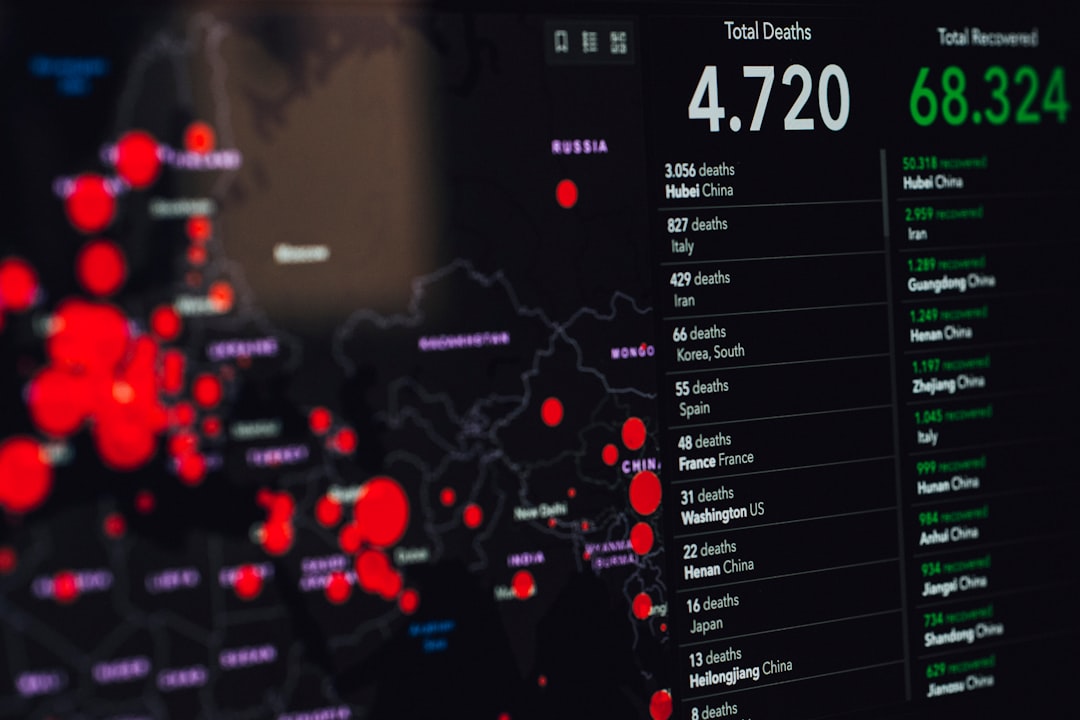What is it about?
This research investigates the environmental and financial aspects of centralized (C) and decentralized (D) wastewater treatment plants (WWTPs) in Bangkok, Thailand. The study assesses four sludge treatment scenarios—centralized dewatering and fertilizer, decentralized dewatering and fertilizer—using Life Cycle Cost Assessment (LCCA) and environmental impact quantification. The research aims to determine the most cost-effective and environmentally viable WWTP construction option for Bangkok, considering life cycle costs and net present value (NPV). It compares the environmental impacts and costs of centralized and decentralized WWTPs, emphasizing electricity consumption as a major factor in these impacts. The study provides insights into the preferable sludge treatment methods and construction options for WWTPs in Bangkok, focusing on the period 2022–2031. [Some of the content on this page has been created by AI]
Featured Image

Photo by Dylan de Jonge on Unsplash
Why is it important?
Understanding the environmental and economic implications of wastewater treatment options is crucial for sustainable urban planning, especially in rapidly urbanizing areas like Bangkok. The study's comparative analysis of centralized and decentralized WWTPs provides valuable insights for decision-making in wastewater management. It highlights the significance of adopting more efficient and environmentally friendly wastewater treatment methods, such as the use of composting for sludge treatment. The findings are essential for local administrations in formulating policies and strategies for wastewater treatment, balancing environmental sustainability with financial viability. Additionally, the study contributes to the broader field of environmental science and engineering by applying a comprehensive life cycle approach to assess the sustainability of wastewater treatment options. KEY TAKEAWAY: Centralized fertilizer treatment is the most viable wastewater treatment option for Bangkok, offering environmental and financial benefits. This research relates to the following Sustainable Development Goals: • SDG 6: Clean Water and Sanitation • SDG 9: Industry, Innovation, and Infrastructure • SDG 11: Sustainable Cities and Communities • SDG 12: Responsible Consumption and Production • SDG 13: Climate Action
Read the Original
This page is a summary of: Life cycle impact assessment and life cycle cost assessment for centralized and decentralized wastewater treatment plants in Thailand, Scientific Reports, August 2022, Springer Science + Business Media,
DOI: 10.1038/s41598-022-18852-y.
You can read the full text:
Resources
SDG Showcase: Goal 6 – Clean Water and Sanitation
More plain language summaries of research relevant to Sustainable Development Goal 6: Clean Water and Sanitation – brought to you by the SDG Knowledge Cooperative
SDG Showcase: Goal 9 – Industry, Innovation and Infrastructure
More plain language summaries of research relevant to Sustainable Development Goal 9: Industry, Innovation and Infrastructure – brought to you by the SDG Knowledge Cooperative
SDG Showcase: Goal 11 – Sustainable Cities and Communities
More plain language summaries of research relevant to Sustainable Development Goal 11: Sustainable Cities and Communities – brought to you by the SDG Knowledge Cooperative
SDG Showcase: Goal 12 – Responsible Consumption and Production
More plain language summaries of research relevant to Sustainable Development Goal 12: Responsible Consumption and Production – brought to you by the SDG Knowledge Cooperative
SDG Showcase: Goal 13 – Climate Action
More plain language summaries of research relevant to Sustainable Development Goal 13: Climate Action – brought to you by the SDG Knowledge Cooperative
SDG Knowledge Cooperative
More plain language summaries of research relevant to all the Sustainable Development Goals.
Climate Change Showcase
More plain language summaries of research relevant to Climate Change
Contributors
The following have contributed to this page










